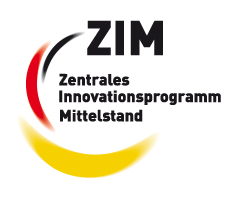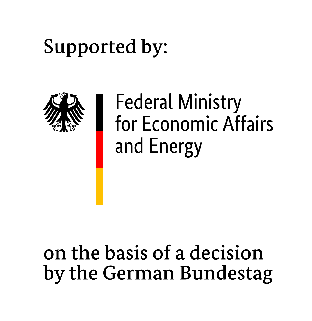

- Customized Health via Air Monitoring Platform -
CHAMP is an innovation project that uniquely combines research and development of an integrated system with novel portable air quality sensors, continuous physiological monitoring and respiratory health expertise. It is an international cooperation project for research and development between the WoePal GmbH (Germany), NVISION Systems & Technologies S.L. (Catalonia, Spain) and medical end-users, and is funded by respective national agencies.
Humanity today faces a global problem that is significantly anthropogenic in origin: Air pollution. According to recent WHO and research estimates, air pollution is responsible for the deaths of more than 7 million people per year. Air pollution is responsible for exacerbating noncommunicable diseases such as chronic obstructive pulmonary disease (COPD), cardiovascular disease, cancer, and diabetes. Among respiratory diseases that can be exacerbated by air pollution, COPD and asthma have proven associations, while there are strong indications that it excarbates COVID-19 and associated pneumonia. CHAMP's approach focuses on two major sources of anthropogenic air pollution that have been shown to impact health and for which sensor integration enables accurate tracking at the personal level, nitrogen dioxide (NO2) and particulate matter (PM2.5).
The air quality measurement and personal health monitoring system, which is being developed through international collaboration between the WoePal GmbH and a number of Catalan actors. It consists of a portable air quality sensor system from WoePal GmbH and artificial intelligence-equipped data acquisition and processing modules suitable for personalized patient monitoring. In the development phase of the system, a clinical trial will be conducted with patients suffering from COVID-19 to monitor the feasibility of early detection of severe progression of respiratory tract diseases.
The work conducted by WoePal GmbH in the project is funded by the German Federal Ministry for Economic Affairs and Energy, in the frame of the Zentrales Innovationsprogramm Mittelstand (ZIM).

Innovate gas sensor network for leakage monitoring of industrial and natural gas infrastucture
Based on the experience gained in IoT4Gas, we are investigating possibilities to improve the performance of individual sensor nodes as well as testing the suitability using the data from the network to detect and localize gas leaks in real time. Industrial plants or pipelines could be comprehensively monitored for methane leaks the first time by integrating IoT technologies with modelling and big data analysis. Leaks and unwanted fluxes could be detected, visualized and localized.
The aim of the project is to derive the optimal sensor specifications necessary for cost efficient production. This is achieved by solving the inverse problem of determining the leak’s gas flow using concentration readings from a set of individual sensor data. The gas flow and the origin of the leaks may be computed by taking into account environmental parameters such as wind and pressure. Sensor node parameters like accuracy of the measured data are crucial for estimating the leak’s strength. Furthermore, different algorithms may show different responses to the accuracy of the individual sensor nodes.
This project applied for funding at the InnoTop program of Rhineland-Palatinate, No P1-SZ2-6, funded by the the European Regional Development Fund (ERDF).

- An iNteropErable multidomain CBRN SysTem -
NEST is an European research and development project for strategical security in civil protection to protect against CBRN attacks. The WoePal GmbH is one of 8 partners from Germany, Poland, Portugal and Spain. CBRN stands for chemical, biological, radiological and nuclear threats. Often this term is used to describe incidents that involve one of these materials, ranging from an industrial accident to a terrorist attack. The main objective is to ensure responders have robust planning and response strategies to reduce the likelihood and impact of these kinds of incidents.
NEST will design and implement a novel and unique standoff system with the capability to detect multiple threats amongst which CBRN threats or pandemic viruses. It will support owners, operators, and security staff by providing (i) threat indications and warnings, and (ii) guidance for facility security by developing appropriate information-sharing and analysis mechanisms. The system concept facilitates economical monitoring of wide areas inside.
NEST will help in the early detection of CBRN threats in real time and also provide complementary information – such as location of threats, temperature, humidity, time, operators involved, etc. – useful for auditing or investigation purposes. These functionalities will be achieved by using an IoT platform capable of acquiring, processing, and merging data from internal and third-party services. Artificial intelligence will be applied to support decision process for securing facilities and for generating automatic alerts. Furthermore, augmented reality will be used to display threats and hazards in a manner that minimize distraction and cognitive failures.
The project with duration of 36 months (May 2021 - May 2024) brings together a well-balanced European consortium. It consists of industrial and SME partners: WoePal GmbH (Germany), Thales (Portugal), Dynamic Safety Corporation (Poland); Academic and research institutions: Consejo Superior de Investigaciones Científicas (Spain), University of Lodz (Poland), Asociación Española de Normalización (Spain); end-users partners from commercial and transportation facilities: Comboios de Portugal (Portugal), Lech Poznań (Poland), and Atiram Hotels (Spain). Moreover, NEST has initiated a Security Advisory Board which consists of Mossos d'Esquadra (Catalonia, Spain) as Law Enforcement Agency (LEA) and experts in the CBRN field. In addition, an Ethics Committee will assess ethical aspects of the project.
Further information can be obtained on the webpage NEST. Please follow the project on LinkedIn, Twitter and Facebook.
This project has received funding from the European Union’s Horizon 2020 research and innovation programme under grant agreement No 101018596.
- Wearable chemical sensors for public health-based business model -
The European Commission has selected the WoePal GmbH and its WorShip project for funding in the frame of a Horizon2020 Coordination and Support Action. An innovation associate is incorporated with the project and beyond, who strengthens current capabilities, opens new fields for innovation development and accelerates bringing products to market.
Goal of this action is to release the full potential of a network of sensors by combining data and embedding it into a modelling framework. This can be further enhanced by employing auxiliary data. Building a framework to access, combine and process data allows the WoePal GmbH to provide the information clients need for decision making. The specific objectives of the innovation associate are subordinated to WoePal’s technology roadmap and are focused on:
- Leading the development of a software framework to extract higher order information from the raw data of gas sensor networks
- Introducing big data approaches to public health issues that are related to air pollution
- Developing and implementing an innovation strategy to bring new services based on gas sensor data to the market
- Acquiring lighthouse projects to increase the visibility of WoePal and establish the company as leading technology and service provider in the air quality and public health sector
This project has received funding from the European Union’s Horizon 2020 research and innovation programme under grant agreement No 861841.

